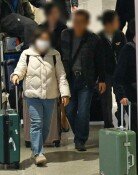Blueprints for Presidential Office reform
Blueprints for Presidential Office reform
Posted April. 07, 2022 07:57,
Updated April. 07, 2022 07:57
Plans of President-elect Yoon Suk-yeol’s presidential office reform are coming into view. Positions of senior secretaries will stay intact, but the Senior Secretary for Policy Execution and Civil Affairs will be scrapped. The titles of the remaining Senior Secretaries may be revised to Presidential Aide. Yoon is also considering cutting down resources working for the Presidential Office by 30%, planning to build a ‘Small but Efficient Presidential Office’ to cut down the roles and functions of the previous presidential office.
It is the right decision for Yoon to eliminate the Senior Secretary for Policy Execution and the two other Senior Secretary positions. The Office for Policy Execution had been founded during the Roh Moo-hyun administration, removed during Lee Myung-bak and Park Geun-hye administrations and restored by President Moon. The position had been criticized for intervening on affairs that could have been dealt by ministries. The Senior Secretary for Job Creation was a position created to execute President Moon’s top priority- job creation. It was not very successful other than creating some jobs in the private sector- it was joked that the Senior Secretary for Job Creation only succeeded in creating the job for him/herself. The Senior Secretary for Civil Affairs, who oversees Public Prosecutor Office, Police and National Tax Service, has been noted for exerting powerful influence at the Blue House.
There are other areas, other than resource reduction, that should be improved. The Blue House has exerted excessive influence in ministerial and appointment affairs, which has caused public office to stay wary of the Blue House. “The public office community would be more encouraged if the authority for personnel affairs is given to the minister in charge,” advised prime minister-elect Han Duk-soo to Yoon a few days ago.
Roles of the presidential office and cabinet should be adjusted as well. The Presidential Office should focus on mid-longer term strategy plans and vision, while the Cabinet should concentrate on dealing current issues on hand. Both organizations should be reformed in a way that encourages free debate and exchange of dialogue, rather than unilateral and hierarchy-based relationship. This will encourage flexible and efficient response towards complex issues at hand. The task of overcoming an imperial president system has been a long-standing one for Korean politics. We hope that the Small but Efficient Blue House that Yoon aspires to build may become the first step towards the task.







